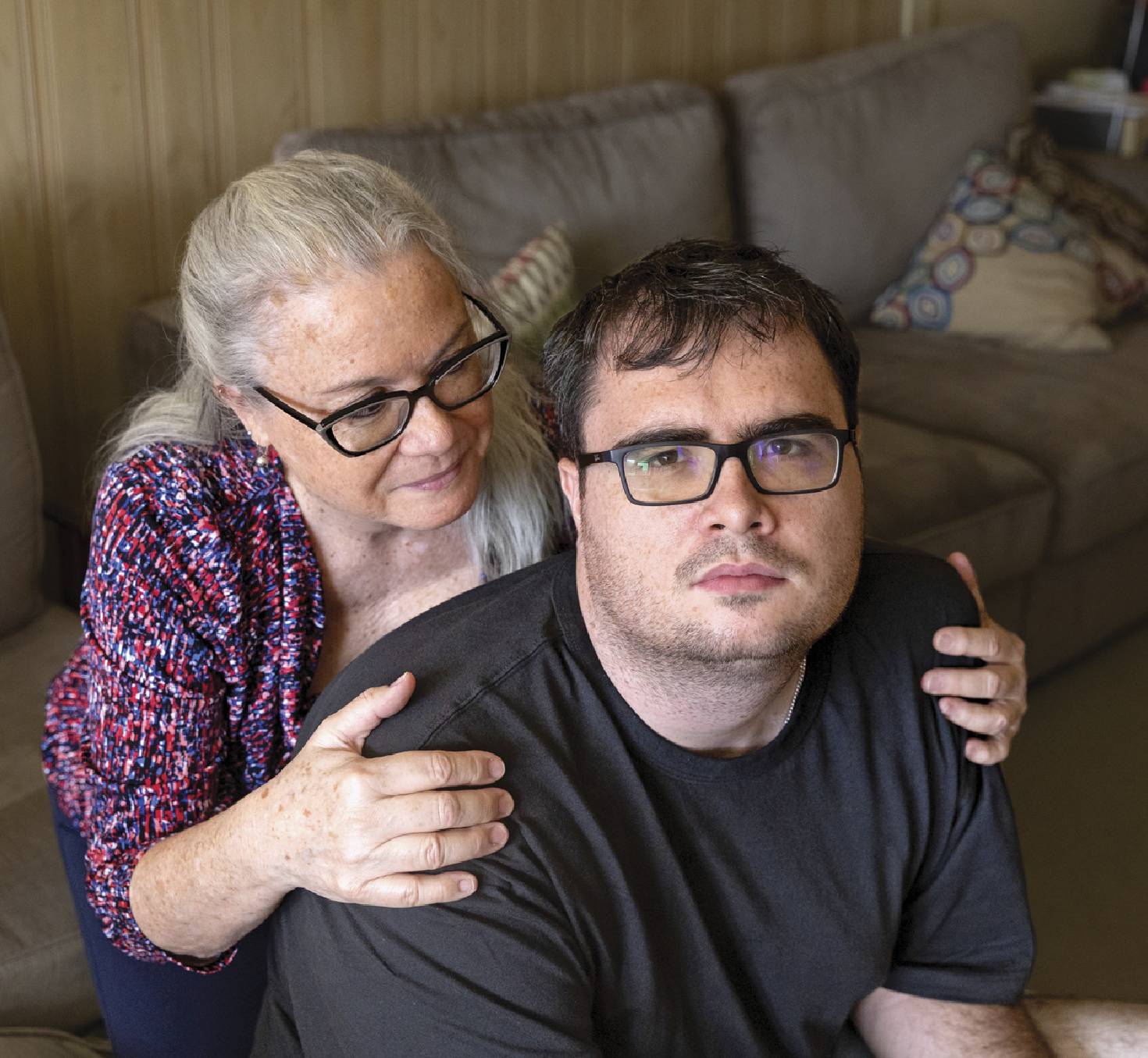MONEY SAVER
Will Max Be OK Without Her?
A schoolteacher worries about what will happen to her adult son with autism
BY Jean Chatzky

Leslie Jarowey with her son, Max
THE PROBLEM
Leaving a legacy for a child with special needs isn’t easy. That’s why Leslie Jarowey, 66, a retired New York teacher, reached out to me. Her son, Max, diagnosed with autism 25 years ago at the age of 5, lives with her in a co-op apartment. He can’t hold down a full-time job; Leslie, newly worried about shrinking government assistance, wants to be sure that when she dies, she’ll leave enough money for Max to be well cared for in their home. “I need his plan to be bulletproof,” she says, “so that no one can misappropriate the money.”
THE ADVICE
Preserving assets for people with disabilities is fraught. It requires trusts and accounts that support them but don’t disqualify them from receiving government benefits. For help, I turned to Mindy Neira, a New Jersey–based financial adviser, and Andrew Cohen, a New York estate planning lawyer, both of whom work with clients who have disabilities. Leslie had three specific questions for them.
▶︎ Could she invest money left to Max by his grandmother? Special needs trusts hold money that can be used for expenses not covered by government benefits, like education and travel. Max’s late grandmother set up such a trust with $26,000 and named Leslie the trustee, giving her control over how the money is used for Max’s benefit. As trustee, says Cohen, Leslie has not only the power but also the duty to invest the money, which has sat in the original checking account for years. But Leslie said financial advisers had told her the $26,000 didn’t meet their client minimums. Neira suggested she open a trust account at Fidelity, Schwab or Vanguard, all of which have no minimums for trust accounts (unless the firm is the trustee), and that she put the money in a balanced or “all-in-one” exchange-traded fund or index mutual fund for easy diversification.
▶︎ Who are the best long-term trustees? Leslie has established a separate trust for Max that will hold life insurance proceeds, the title to her apartment and any other assets remaining after her death. But she worries about who will succeed her as trustee. Neira suggested working with a nonprofit such as The Arc, the AHRC NYC Foundation or Cumberland Trust, all of which operate trusts for people with disabilities. Leslie would then name a friend or family member as a trust protector to preserve her vision for Max. Some of these organizations keep assets for multiple beneficiaries in one investment pool, but Leslie could have The Arc manage Max’s trust separately, giving her and her successor more control over its investments.
▶︎ Will Max have enough money for the life Leslie wants for him? To answer that, Neira studied Leslie’s finances. Her assets: an untapped annuity of $220,000, a $250,000 insurance policy and her $440,000 home. Her liabilities: $23,000 in credit card debt and a $130,000 mortgage. Neira estimated that Leslie, who works part-time as a substitute teacher, could spare $1,000 to $3,000 of her cash flow per month, depending on fluctuating health care expenses; Leslie should pay off the credit card debt with that money, Neira said, then build up an emergency cash fund in a savings account. If Leslie and Max’s medical costs rise significantly, she may have to tap her annuity. But even if she does, there should be enough money to support Max.
THE OUTCOME
“I’m absolutely going to pay down the credit card debt first,” Leslie says. Then she’ll split her savings between an emergency account and, to help cover apartment maintenance, the trust she set up. She also will explore The Arc. Leslie feels good now about Max’s future. “When I was younger, my answer was: I’ll just keep working,” she says. “To have a plan is a lot better.”
Want Jean Chatzky to write about helping you sort out your financial problem? Email rescue@aarp.org.
* Trust & Will pays AARP a royalty for use of its intellectual property and provides a benefit to AARP members
Photo: Jackie Molloy